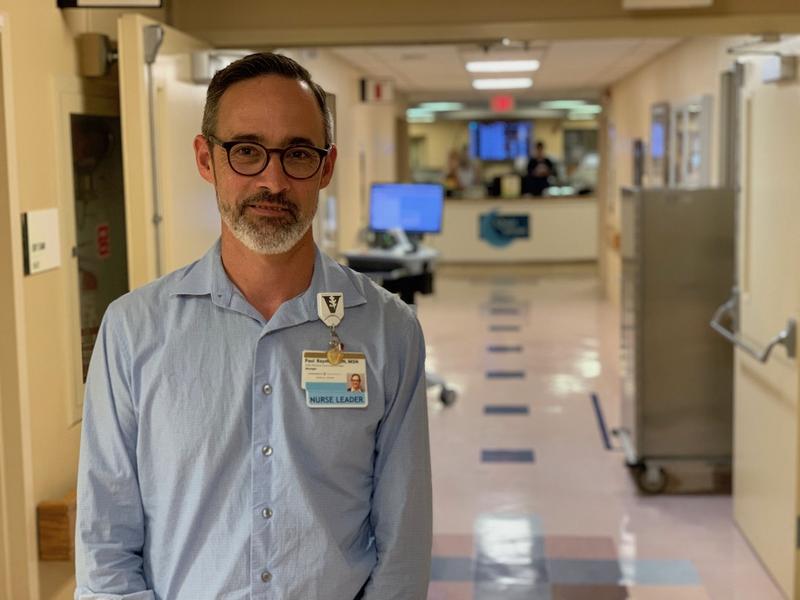
Vanderbilt University Medical Center has established house rules for problem patients who abuse drugs while in the hospital. The policies are meant to improve safety for other patients and staff.
Vanderbilt is treating more illicit drug users with complex infections, and that means extended stays. Especially if the infection gets to a patient’s heart, they may need IV antibiotics for up to six weeks. And just being in a hospital doesn’t make their addiction go away, even if they’re put on medication to treat their withdrawal symptoms. So they already require additional surveillance.
“This isn’t kindergarten, and it’s also not jail,” says Paul Raymond, a nurse team leader.
Patients will “cheek” painkiller medication, hiding it in their mouth until the nurse leaves. Then some crush it up and snort it or find a syringe and mix it with tap water to inject it through their IV.
Raymond says others will go outside for a smoke on the nearby VA hospital property and sneak street drugs back in. It was becoming a burden on nurses to police the patients.
“I had no misgivings about helping roll this program out. It had to be done,” he says.
The hospital writes up a contract that might restrict them from leaving the building to smoke or require an aide to be in the room with them at all times. If they can’t agree to it, then they can leave — and some have.
Inspired By UT
At this point, the protocol isn’t for every patient with an addiction — only those who are deemed to be otherwise uncooperative. But Vanderbilt’s pilot program was inspired by the University of Tennessee Medical Center in Knoxville, which has made it a blanket policy.
At UT, patients with substance abuse-related infections have to submit to a search, and they can’t have a cell phone or visitors. And hospital officials say it’s working.
“We’ve seen a 67% reduction in the illegal drugs found on our campus, which means a safer environment for our patients, visitors, and team members,” UTMC CEO Joe Landsman says in a satement.
Some outside addiction experts say such policies are misguided but acknowledge the difficulty of treating this population. Vanderbilt psychiatrist David Marcovitz, who oversees addiction in the hospital, says it’s a safety concern, a setback for treatment and a drag on morale.
“We know from a survey a couple years ago that our nurses are stressed out and burned out by this issue,” he says. “People want kind of clear guidance on how to handle these concerns in the hospital.”
At Vanderbilt, so far only one patient has been forced to go. But Marcovitz says he hopes the policy will reduce the number who walk out against medical advice with clearer ground rules rather than constant friction with the staff.
In some ways, Vanderbilt has begun embracing a philosophy of harm reduction, where patients are not given strict rules to participate in treatment. But Marcovitz says that only works well in outpatient settings.
“In the hospital, the stakes are higher. Patients have IV access. Their behavior affects staff more directly. They affect other patients more directly,” he says. “So we are erring a little less on the side of harm reduction.”


